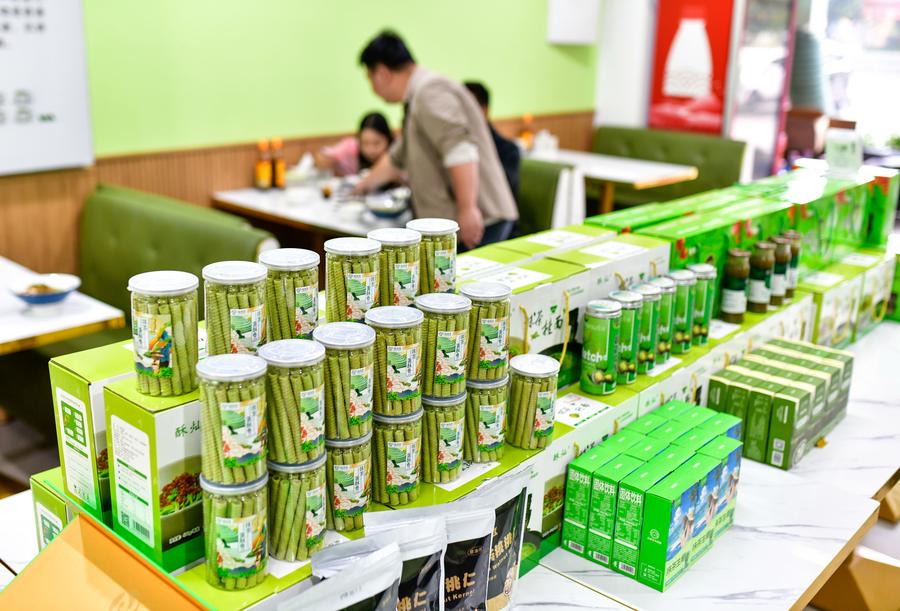




- BRNN
- BRI News
- BRNN News
- Database
Official Documents Polices and Regulations
Inter-government Documents International Cooperation BRI Countries
Business Guide Economic Data BRI Data
Trade
Investment Projects Latest projects
Cases - Content Pool

Matcha products are pictured at a store in Jiangkou county, southwest China's Guizhou Province, May 14, 2025. (Xinhua/Yang Wenbin)
In Jiangkou county, Tongren, southwest China's Guizhou Province, the matcha cold storage facility at the industrial park of GuiTea Group, a leading tea producer in the province, is running at full capacity.
Recently, four tonnes of matcha were shipped from the facility to Japan. According to Lan Fangqiang, deputy general manager of Guizhou Tongren Gui Tea Co., Ltd. under GuiTea Group, this marked Japan's first matcha purchase at such a large scale from the company.
Since the beginning of this year, the group has exported matcha to Japan three times, totaling 16 tonnes. In recent years, GuiTea Group has invited Japanese experts to share advanced production techniques and has built a large factory dedicated to matcha manufacturing, which has now achieved mass production.
The bustling production line reflects Tongren's broader effort to develop its matcha industry. The city is known as the "capital of matcha in China." Its matcha exports have risen steadily in recent years. In 2024, Tongren exported 180 tonnes of matcha, and in the first half of this year, exports reached 230 tonnes, up 42 percent year on year.
With global demand for matcha continuing to grow, Tongren's products are gaining broader recognition in international markets, driving a steady increase in orders. In the first half of this year, the city added 23,400 mu (about 1,560 hectares) of new matcha planting bases, with output reaching 820 tonnes. In 2025, Tongren's matcha has reached consumers in more than 50 countries and regions, including Japan, the United States (U.S.), and France, with overseas sales maintaining strong momentum.
To further penetrate global markets, Tongren has made high-quality matcha its flagship product while actively expanding market share in Japan, Germany, the U.S., and other markets. The municipal government has set clear production goals: to produce at least 1,750 tonnes of tencha—the raw material for matcha—by the end of this year, and over 2,200 tonnes by 2026.
To date, Tongren has developed 58 matcha products that are now available on supermarket shelves in 43 countries and regions. The city also plans to set up overseas branches and establish local marketing teams in the U.S., Southeast Asia, the Middle East, and Europe.
In recent years, China has significantly upgraded its matcha manufacturing capacity and expanded exports to Japan. According to a Kyodo News Agency report, Tongren's influence as a matcha production hub is steadily increasing. China's matcha output this year is expected to exceed 5,000 tonnes, placing the country among the world's top producers.

Tel:86-10-65363107, 86-10-65368220, 86-10-65363106